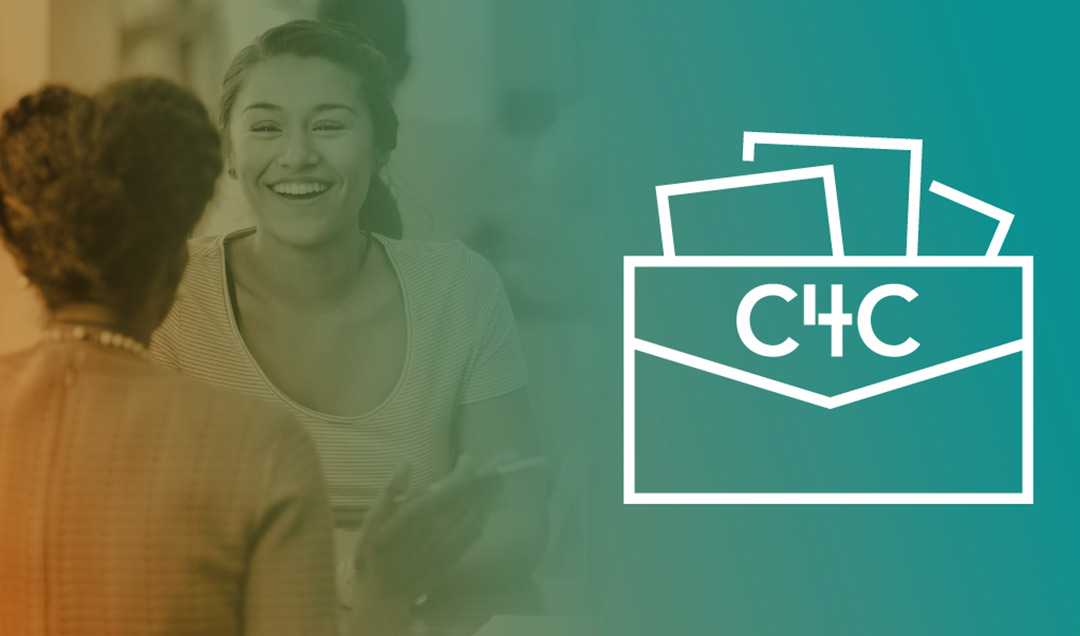NCWIT's Counselors for Computing Program
05 Dec 2022
NCWIT Program Equips School Counselors to Increase Students' Awareness of Pathways Into Computer Science
The National Center for Women & Information Technology's (NCWIT) Counselors For Computing (C4C) Program equips school counselors with information and tools to increase student awareness of computer science career pathways.

NCWIT, a DoD STEM partner, has a unique program to help school counselors encourage all students to learn computer skills - something that is critically important given that the majority of career paths now require advanced problem-solving skills, also described as “computational thinking.”* The C4C Program equips school counselors to remove barriers to student participation and advocate for adding coding and other computer science courses with decision makers such as teachers, principals, and school district administrators.
Interview with Kelsey Kman, NCWIT C4C program manager
Q. How does your program impact the way school counselors perceive computer science courses?
A. We have found that after completing our program school counselors have a new understanding, appreciation and even amazement about the fact that computer science courses teach foundational skills that are required for all other subjects. We call this “computer science plus X,” or “CS+X” which means “computer science plus psychology,” or “computer science plus anthropology.” Any and all other subjects can replace the “X.” Students learn many important skills during computing and coding classes that will positively impact their education and vocation for the rest of their lives. Before our course, most school counselors think of computer science solely as information technology or writing code. Interestingly, cyber security is not part of this awareness. After our course, they have a deep understanding that computer science touches practically all parts of modern life.
Q. How does your course impact behavior change among school counselors?
A. Our goal is for school counselors to include mention of computer science education in all interactions with students, especially girls and students from groups traditionally underrepresented in STEM. We want school counselors, and by extension the students they advise, to see themselves as viable advocates for computing education and careers. School counselors can take direct action by sharing course and career path information with students and indirect action by advocating for more opportunities with decision makers. We like the approach encouraged by Jaime Casap, former education evangelist at Google, who says to stop asking students “What do you want to be?” and instead ask “What problem do you want to solve?” Feedback from our school counselors says that all of the above happens more after our course!
Q. What are best practices for school counselor action?
A. We subscribe to the American School Counselor Association's (ASCA) Student Standards: Mindsets and Behaviors for Student Success. Because school counselors are already trained in creating access and equity for students through the ASCA School Counselor Professional Standards and Competencies, we are thrilled to offer C4C's information and resources to help them do their jobs more effectively.
Q. What is your top message for school counselors?
A. We would like school counselors to understand how much students are missing out on by not graduating with computing fluency. Fortunately, computer science educational standards are trending in the right direction at both the state and federal level. Still, NCWIT's C4C Program is the only computer science program that brings counselors into the conversation and equips them to effect real change. (State-by-state standards can be found at code.org.)
Q. What is your top message for students?
A. The same thing! Students really need to understand the importance of learning computer skills. You would never let someone say “I am not a reading person” in the way that society has accepted “I am not a math person.” Not knowing how to code in the 21st Century is just like not knowing how to read.
*See the Brookings Institution Report “Building Skills For Life” for more on computational thinking and improving computer science education.
About DoD STEM and Defense STEM Education Consortium
Defense STEM Education Consortium (DSEC) is a collaborative partnership of STEM-focused organizations dedicated to addressing and prioritizing our nation's STEM talent. DSEC aims to broaden STEM literacy and develop a diverse and agile workforce with the technical excellence to defend our nation. Through strategic investment in STEM education and outreach activities, the effort will provide students with more exposure to educational and career opportunities as well as DoD research. DSEC is led on behalf of DoD STEM by RTI International.
About NCWIT
NCWIT is the only national nonprofit focused on women's participation in computing across the entire ecosystem, helping more than 1,100 organizations recruit, retain and advance women from K-12 and higher education through industry and entrepreneurial careers by providing support, evidence and action. In addition, NCWIT supports school counselors to remove barriers so students choose to learn computing, consider pursuing technical career paths and believe their voices can be heard in the tech industry. For DSEC, NCWIT is focusing on expanding opportunities for girls to learn programming and computational thinking in lab-adjacent communities